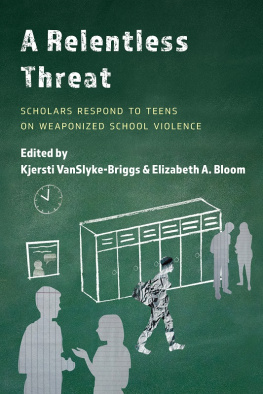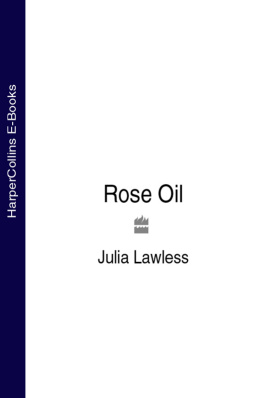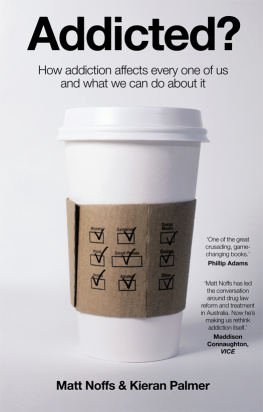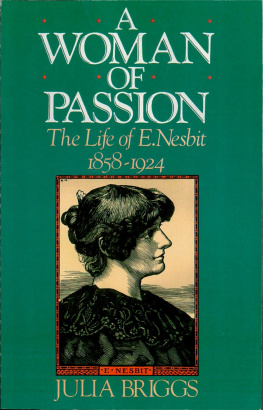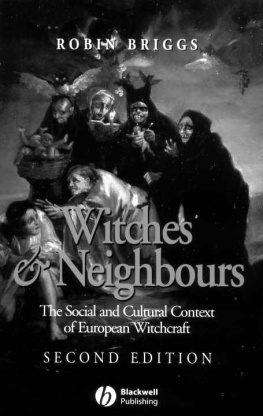

First published in Great Britain in 2017 by
Policy Press University of Bristol 1-9 Old Park Hill Bristol BS2 8BB UK Tel +44 (0)117 954 5940 e-mail
North American office: Policy Press c/o The University of Chicago Press 1427 East 60th Street Chicago, IL 60637, USA t: +1 773 702 7700 f: +1 773-702-9756 e:
Policy Press 2017
British Library Cataloguing in Publication Data
A catalogue record for this book is available from the British Library
Library of Congress Cataloging-in-Publication Data
A catalog record for this book has been requested
ISBN 978-1-4473-4169-7 paperback
ISBN 978-1-4473-4168-0 hardcover
ISBN 978-1-4473-4171-0 ePub
ISBN 978-1-4473-4172-7 Mobi
ISBN 978-1-4473-4170-3 ePdf
The right of Daniel Briggs and Rubn Monge Gamero to be identified as authors of this work has been asserted by them in accordance with the Copyright, Designs and Patents Act 1988.
All rights reserved: no part of this publication may be reproduced, stored in a retrieval system, or transmitted in any form or by any means, electronic, mechanical, photocopying, recording, or otherwise without the prior permission of Policy Press.
The statements and opinions contained within this publication are solely those of the author and not of the University of Bristol or Policy Press. The University of Bristol and Policy Press disclaim responsibility for any injury to persons or property resulting from any material published in this publication.
Policy Press works to counter discrimination on grounds of gender, race, disability, age and sexuality.
Cover design by Liron Gillenberg
Front cover image kindly supplied by the authors:
Readers Guide
This book has been optimised for PDA.
Tables may have been presented to accommodate this devices limitations.
Image presentation is limited by this devices limitations.
This is what criminology should be about!
Leah Moyle, Griffith Criminology Institute, Australia
An exceptional study and a fascinating read. Briggs and Monge Gamero have the rare capacity to both inform and excite their readers at the same time. This is ethnography at its best; the small-scale cultural contours of problematic drug use in one of Europes most marginalised and impoverished districts are set firmly here in their respective historical and socio-economic contexts. The authors skilfully throw light on a hidden population in this text, and their efforts should be commended. This is as close to a European Righteous Dopefiend as anyone has yet come. All scholars, practitioners and policy-makers with a stake in the drugs field should read this book.
Steve Wakeman, Liverpool John Moores University, UK
Just the type of research and critique Spain so desperately needs.
Jorge Ramiro Prez Surez, University of Huddersfield, UK, and the European University of Madrid, Spain
Dead-end Lives offers a vision of life at the new margins of Europes cities today. An unflinching, yet ultimately compassionate rendering of human vulnerability, Briggs and Monge Gamero examine social frailty amidst the ruins of unifying national projects and dilapidated utopian housing estates. For those concerned with our contemporary social condition, and perhaps even more so for those who are not, Dead-end Lives is a work of great importance.
Rowland Atkinson, Sheffield University, UK
Takes the reader into the Valdemingmez quarter of the Caada Real Galiana shanty town in Madrid. Rich in detail and firmly contextualised in neoliberalisms unforgiving global market, Briggs trains his powerful searchlight on the devastating social consequences of unemployment, insecurity and pervasive drug markets. One of the original and still one of the best of the new ultra-realist ethnographers, Briggs has done it again. Essential reading.
Steve Hall, Teesside University, UK
Following on from Crack Cocaine Users , Briggs and Monge Gamero have written another hard-hitting ethnography of the chaotic lives of socially excluded cocaine and heroin consumers, and the limitations of drug policy. Dead-end Lives offers an important contribution to the literature on the policing of drug markets, harm reduction and drug use careers.
James Windle, University of East London, UK
A richly investigated and penetrating account of drug dealing and drug use in Valdemingmez in the Caada Real, Madrid. Offering first-hand accounts from people whose stories are seldom told, Briggs and Monge Gamero take us on a dark journey through a place shattered by neoliberal restructuring and its complex associated harms.
Alexandra Hall, Northumbria University, UK
This book is dedicated to Julia as well as to the very people who are at the centre of the research: those who visit and live in Valdemingmez and have to survive, day in, day out, on its violent front line.
Contents
Dr Daniel Briggs is a Consultant to the British Foreign Office who works part time at the Universidad Europea in Madrid, Spain. As a researcher, writer and interdisciplinary academic who studies social problems, he has undertaken ethnographic research into social issues from street drug users to terminally ill patients; from refugees to prostitutes; and from gypsies to gangs and deviant youth behaviours. He also lectures across the social sciences and has published widely.
Rubn Monge Gamero has a first-class undergraduate degree in Criminology from Universidad Europea and his final-year project was based on participant observation of Valdemingmez. He recently concluded a Masters in Intelligence Analysis and hopes to be a police officer.
We firstly thank all the drug users who knowingly or unknowingly participated in our work. Their assistance in this work has been integral, and we are grateful that they took time out from daily chores, often waking up feeling sick, and delayed drug taking to be able to talk to us. We are ever indebted to the harm reduction team, in particular Roberto, who spent many hours and days with us, not only in the area, but in his personal time, helping us clarify our findings and shape our concepts. Having got to know him, we can see why he is one of the central characters to the poblado , who is dearly loved by the people he helps: he truly is an underappreciated worker who has a major impact personally on the people of Valdemingmez. Diego and Nacho, from the Local Police in Madrid, have also given us detailed and valuable insights into how Valdemingmez works, often describing in disturbing detail the reality of the situation.
Several people have also helped in shaping the vision for research and this resulting book. In particular, we thank Inma Ruiz Finicias, a worker we have come to know dedicated to drug prevention work and generally helping vulnerable people. Cristina Alonso gave us access to people in recovery in the Basida programme, just south of Madrid, where they do wonderful work with people who are often dying of drug-related illnesses. Some expert academics have kindly volunteered to review and comment on our work: they are Professor Philippe Bourgois, Professor Dick Hobbs, Professor Rowland Atkinson, Professor Simon Winlow, Professor Steve Hall, Dr Steve Wakeman, Dr Marina Mattera and Dr Leah Moyle. Their feedback has been important in moulding the correct theoretical and structural parts of the book, and they also did it in a very short space of time, on top of their busy schedules. Thanks to our publishers, Policy Press, in particular Victoria Pittman and Rebecca Tomlinson, for taking forward our project and believing in its social significance. Lastly, we think a new form of humble appreciation is required of what it means to research social miseries, and that it shouldnt turn into a circus of institutional back patting. We did this work ourselves to give voice to those in the book, so thank no one else no government body, no funder, no political entity because none of them had any hand or interest in our endeavours to highlight what is happening in Valdemingmez. We thank, last and least, our family and friends: this goes without saying.


